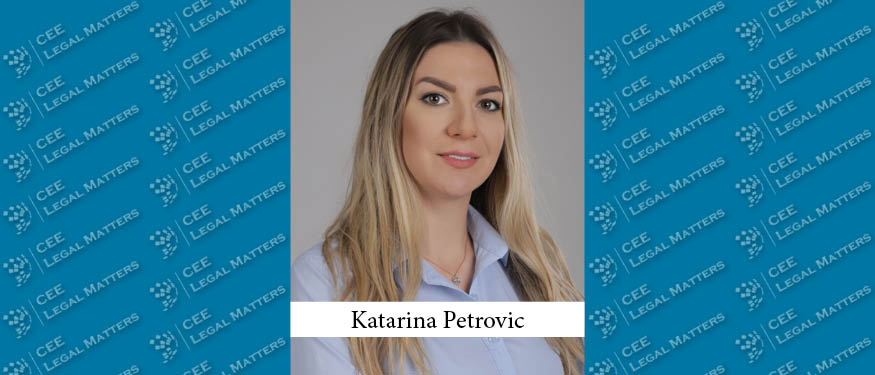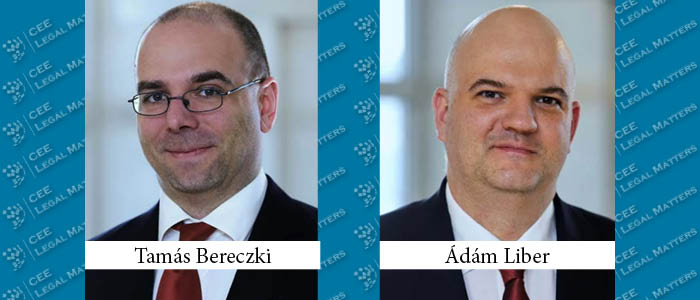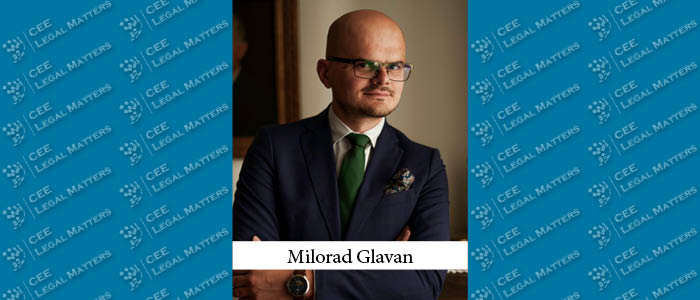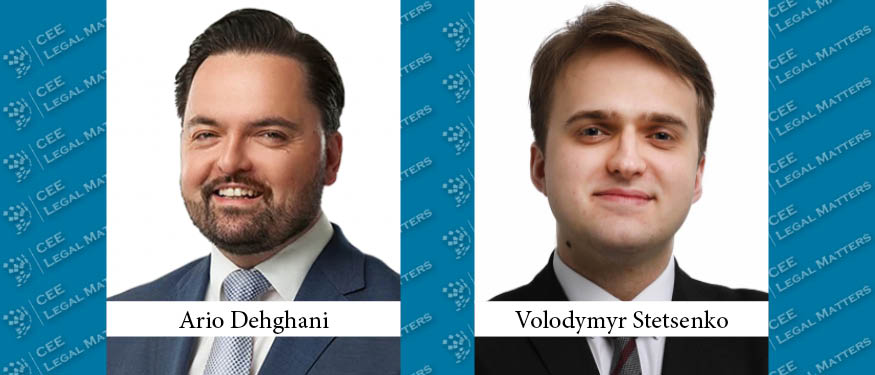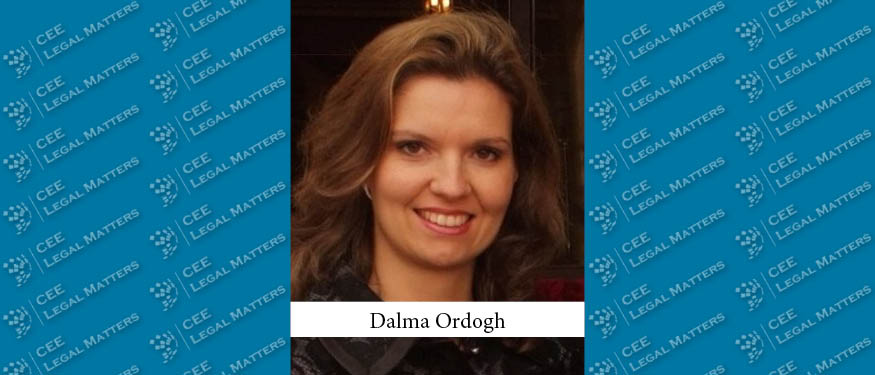In The Corner Office we invite Managing Partners at law firms from across the region to share information about their careers, management styles, and strategies. The question this time around: Is your personal practice more or less the one you anticipated when you finished law school, or did it change somehow in the interim?
Alexandra Doytchinova, Managing Partner, Schoenherr, Bulgaria
In 2001 I was focusing on private international law in my first job as a research and teaching assistant at the University of Graz, and I had not even heard of due diligences, NDAs, SPAs, disclosure letters, and the rest of what counts as standard transaction documentation. Then I met some people from Schoenherr – first at a seminar, then at a party – and we really hit it off. The Managing Partner of Schoenherr at the time, Christoph Lindinger, was a pioneer in SEE expansion and excited about the idea of having more SEE people on board. Eventually, although the firm didn’t yet have an office in Bulgaria, he invited me to join Schoenherr – and I accepted. I really had no idea what to expect, and even took a year off from the University so that I’d be able to return to my assistant job if I needed to (which I obviously never did).
So actually, I never meant to do M&A and never applied for a position with Schoenherr, and, when I accepted their offer to join the M&A team, I really had no idea what to expect. But I thought they were cool guys, and I was open to learning – and it turned out I loved it, loved Schoenherr, and ended up opening their Sofia office a few years later, in 2004.
I am happy to see that insight into transaction-based M&A work is being offered to law students nowadays. This gives our younger colleagues the chance to make an educated choice on their preferred practice area earlier in their careers.
Panagiotis Drakopoulos, Managing Partner, Drakopoulos, Greece
I always liked business and followed the transactions of great businessmen in the news. As a law graduate, I pictured myself as an international business lawyer, flying around the world closing deals for my clients. Fortunately, the reality proved to be not too far from what I imagined, albeit less glamorous, especially due to the jurisdictions where I found myself practicing. All in all, I started out to be a Corporate and M&A lawyer, and, for the most part, Corporate and M&A turned out to be my actual practice.
Uros Ulic, Managing Partner, ODI Law, Slovenia
My practice has, after approximately ten years, shifted from domestic dispute resolution to international cross-border transactional work, which was almost non-existent in SEE at the time of my study at the Ljubljana and Amsterdam law schools. In order to develop a full-service business firm we needed to have a transactional team. Since M&A activities were at the very early stage lateral hiring was not possible. So I decided to accept the challenge myself. This change gave me additional motivation and work satisfaction and ultimately made me a better expert by broadening my legal knowledge and skills.
I would strongly recommend that every seasoned practitioner either change his/her practice area or at least some angle of it. Young lawyers however should first master personal practice before moving to another in order to meet professional standards.
Ron Given, Co-Managing Partner, Wolf Theiss, Poland
Being the first lawyer in my family, I did not have a very sophisticated set of career expectations when I graduated from law school in 1978. All I knew for sure was that I was tired of never having any money and all the lawyers in my small, Midwest-U.S. seemed to have more of it than me. I interviewed for my first law job with a Chicago firm because, naturally, I had been told the money was good there. I ended up staying with that firm for 30 years, never returning to my hometown. One weekend while proudly clipping the hedges of my (tiny) first home, I took a call from a corporate partner who needed help on a Sunday. I helped and it led to years of work with him doing energy sector deals in New Orleans, buying and selling ship yards along the course of the Mississippi, and flying in private jets. Stepping up to a similar response from a banking partner led to a great amount of finance work, mostly in New York City but also including a 3-month stint among the cowboys of Oklahoma City when a major bank failed. Taking an assignment from a partner that most associates avoided because he was “difficult to deal with” led me into the insurance business and to many trips to Bermuda where I learned that serious business people really do come to work in shorts.
Internal things happened, as well. I was appointed as one of the first Practice Group leaders in any American law firm – believe it or not practice groups were revolutionary ideas at the time. I think my main credentials were that I got along with people and always said yes if asked to “volunteer” for something. When Japanese business opportunities arose I was asked to coordinate them, first domestically in the U.S and then in Japan itself. After Japan, I got into Chinese matters, traveling there for the first time in 1990. Although the path has been a bit zig saggy at times, the direction has always been forward onto new and interesting challenges. Along the way many colleagues and clients have become friends and it seems that in at least some cases I have managed to make a difference. What more could you ask for?
2017 is not 1978, of course. I believe it is fair to say that the times and choices are tougher today for young lawyers. But the law is still a profession where opportunities for the unexpected abound, regardless of family connections or the size of your hometown or whatever. What continues to really matter is what you can do and your willingness to snatch the chances that come along for you.
Andrey Goltsblat, Managing Partner, Goltsblat BLP, Russia
My current personal practice far exceeds what I could have imagined. I was admitted to the Law School of the Soviet Union Interior Ministry and graduated in Law with distinction. It was the time of Boris Yeltsin, when the USSR was collapsing and history was being created right outside my office at the first Russian Parliament, where I held the position of Head of Staff of the Constitutional Commission. In August 1991, tanks went out into the streets of Moscow and this saw the demise of the Soviet Union. In 1993, Yeltsin dismissed Parliament. The work on the First Russian Constitution was almost completed and he put it up for a referendum. It became Law, a new Russian Duma was elected, and I quit my job, as the enthusiasm had waned.
A new era of my career began. In 1993, bold foreign investors were seeking legal support in Russia. One of them was Mars, Inc., which desperately needed support for construction of its confectionery plant. I was introduced to them by their UK lawyers and tasked with making a land deal with the local Mayor for building a plant. They had been negotiating six months with no visible progress, so I stepped in. The UK law-governed lease they were negotiating was poorly translated into Russian and made no sense to the Mayor, so they got stuck. This was my first experience as a commercial lawyer and I didn’t have a clue about land leases, but I delved into the Land Code of Russia and drafted a six-page lease; in two weeks, the deal was done. I realized I could be a commercial lawyer, as this was a huge success for my client. The venture began and brought me to the point where I am today. Mars is still our major client.
Willibald Plesser, Co-Head of CEE/CIS, Freshfields Bruckhaus Deringer, Austria
When I finished law school, I had no idea what a lawyer’s life would look like. As a matter of fact, I became a lawyer by coincidence (as so often in life one needs a bit of luck).
Nevertheless, my interests were from the beginning in civil and commercial law, and not, for instance, in criminal or family law. When I joined the predecessor firm of Freshfields in Vienna, we were only six lawyers, so obviously everyone had a much broader practice. I did lots of litigations and some arbitrations which are always excellent training for any lawyer. In addition, my focus was on international commercial transactions, in particular for U.S. clients, but I also worked for a number of CEE and Russia-based foreign trade organizations, which before the fall of the Iron Curtain in 1989 dealt with the import/export business in their countries. The latter certainly was the basis for my interest in the CEE region today.
When Freshfields developed into a matrix organization, each lawyer joined (usually) one practice group (mine is corporate) and one or more sector groups (mine are FIG, energy, and media). Given today’s demands to provide leading edge advice on an international level, there is no alternative to specialization and size anyway, but I should also add that personally I have immensely enjoyed this development. I have always considered it a real privilege to be able to work in teams of top lawyers, thus being able to produce the highest quality work available and have fun at the same time.
Vladimir Sayenko, Managing Partner, Sayenko Kharenko, Ukraine
My legal practice is actually very close to my expectations when I finished law school. By the time I graduated, I already knew quite a lot about the practicalities of legal work. In the early and mid-1990s, it was common for Ukrainian lawyers to enter the workplace at a relatively early age, and so during my last two years at law school I was already effectively working full-time. Many of the American lawyers I met during my LL.M. studies in the US after I completed my Ukrainian law degree were surprised to find me listed in Martindale-Hubbell with two years of associate experience, and I became one of the youngest lawyers admitted to the New York bar at the time.
However, while my practice stayed more or less the same, the kind of firm I expected to work with change substantially. Initially I, like most of my classmates, assumed I would have to join an international firm to handle top-tier cross-border and other complex and challenging legal work. Instead, after practicing law for 10 years, I came to realize that I did not have to limit my ambitions to building a career with an international firm and that a good national firm can actually play a much more prominent role on the Ukrainian market than the local office of an international firm could ever hope to, by building partnerships with the best firms from other jurisdictions and gathering diverse experience from strategic cooperation. That’s how the idea to create Sayenko Kharenko was born about 13 years ago.
Erwin Hanslik, Managing Partner, Taylor Wessing, Czech Republic
I studied law in Salzburg, in Austria. I had an offer from the Czech firm Balcar Polansky to do an internship in Prague. I had just finished my studies, so it was a great chance to spend three months in Prague. Since I am a native German speaker, I was, from the moment I arrived, the contact person for all German-speaking clients of the firm. You can imagine, how important I felt …
When the firm invited me to prolong my stay, I decided to stay for another year. At that time, I did not speak Czech, so it was clear that I would return to Austria after that. But then I started to take language classes and it worked out. So I actually never really moved to Prague, but I simply stayed here.
Juri Raidla, Senior Partner, Ellex Raidla, Estonia
I graduated from the University of Tartu in 1980. The legal profession, as we understand it today, did not exist in Estonia at the time. There was no legal market – we did not even have our own state. Therefore, nothing from nowadays can be compared with those times.
Then came the time when Estonia regained its independence. Many of us, including myself, became involved in political affairs not because we were politicians but because it was something we had to do. So I was a Minister of Justice from April 1990-January 1992, then I continued as a Chairman of the Expert Committee (until June 1992), helping the Constitutional Assembly to prepare a new Constitution for the Country. After achieving what we wanted to achieve, many of us continued or entered into their professional life like into their normal way of professional being.
It was not my own idea to establish our law firm. The idea was suggested by French lawyer Daniel Hurtsel, who is currently a partner of Willkie Far. Since I was a free man in a free country in the middle of 1992, I accepted Daniel’s idea and this way the law firm Raidla & Partners, currently Ellex Raidla, was founded on February 22, 1993.
Gediminas Dominas, Managing Partner Dominas Derling, Lithuania
When I finished law school I only had a very vague understanding of what the legal practice was about. Moreover, in the early 90s Lithuanian legal practices focussed only on criminal law and private client litigation. This was the time when the old communist system collapsed, the free market started to develop, and Lithuania regained independence. So two major trends – the development of business and internationalization – completely reshaped the legal practice. Eventually law firms started to emerge and developed into large modern institutions dealing with international matters. Law firm management and business development – I had never heard or thought of these concepts in law school. I later realized that law firms are subject to the same market principles as any other business. That being a good lawyer is only part of your practice. You also need to devote a lot of time to business administration, client relations human resources and the like.
Zeynep Cakmak, Co-Managing Partner, Cakmak-Gokce Attorney Partnership, Turkey
When I was in the early stages of my career and before starting to work as a practicing lawyer, I thought working as a counsellor was a great idea which would not compel me to go to court, which looked like a terrifying practice. Over time, I found myself going to the courthouse often and appearing in hearings, which I kind of liked. There is a different satisfaction in doing litigation and it teaches you how to make sound interpretations of law. I do not think it is possible to give proper counsel to your clients without having the self-experience as to how the courts interpret and apply the law. Now my advice to young lawyers who think like me at the beginning of their career is that being in the kitchen of the practice is critical in serving your clients as a counsellor. I view it necessary to becoming a complete practicing lawyer in Turkey.















